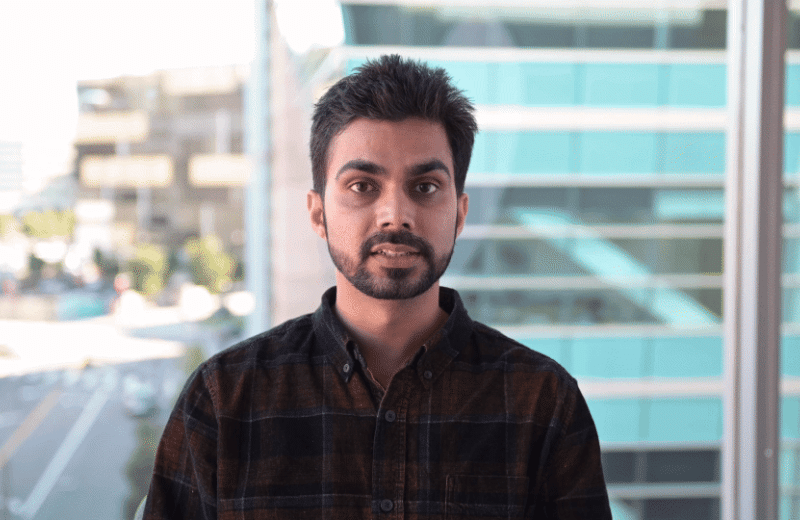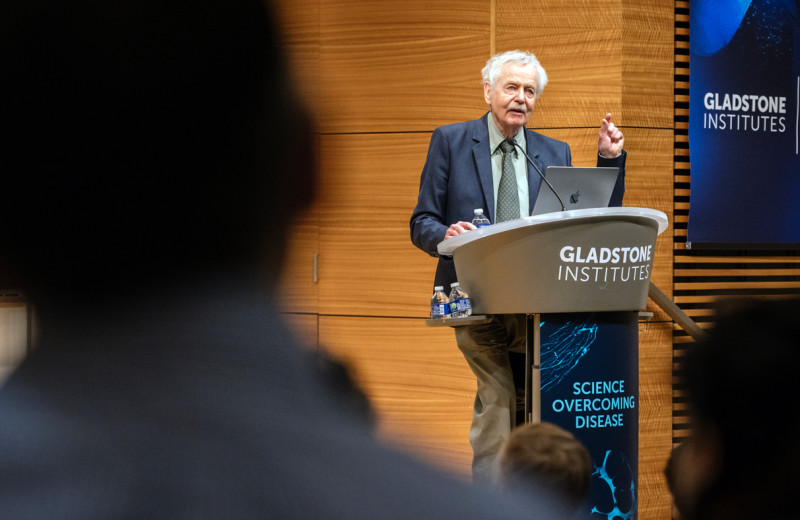Gladstone NOW: The Campaign Join Us on the Journey✕

Melanie provides insight into the importance of mentoring, and reveals her passion for yoga.
What brought you to Gladstone?
The opportunities around HIV research in San Francisco. Gladstone was and remains one of the best places in the world to do HIV research.
Why is mentoring important?
Mentoring is important because it brings out the best in people. I love seeing my trainees grow, evolve, and blossom. I want them to become strong scientists, confident thinkers, and resilient citizens.
What is your favorite aspect of mentoring?
The personal contact with my trainees and learning about them, finding out what they like and dislike, what they’re good at, and where they need support.
Do you have a mentoring mentor?
I think mentoring is a natural instinct of mine, but I also had excellent role models along the way, something that I only fully appreciated later in my career.
What do you like most about your job?
Discovering cool science and hanging out with my people.
What is the focus of your lab at Gladstone?
We study how viruses interact with the host and what we can do to strengthen defense mechanisms and weaken dependency pathways from the host to the pathogen.
What or who influenced your decision to work in science?
My first experience seeing DNA precipitate; I thought this was magic. Coming from the clinic, I also loved not being restrained by what I had learned and having the opportunity to discover something new.
What do you do when you are not working?
I am a passionate Bikram yogi.
If you could learn to do anything, what would it be?
I’d love to learn to play the cello.
What is your hidden/unique talent?
I am a pretty adventurous cook.
Name one thing that not many people know about you.
I worked with Heiko and Eva Braak in Frankfurt when they discovered the Alzheimer staging scale.
If you could meet any scientist from any point in time, who would it be and why?
I very much liked Eva Braak. She was an unsung hero, a tireless worker, and the quieter part of that duo. She unfortunately died early, and never enjoyed the recognition she deserved. I would love to talk to her now about her passion for science and her role as the female science partner.
Want to Join the Team?
Our people are our most important asset. We offer a wide array of career opportunities both in our administrative offices and in our labs.
Explore CareersMeet Gladstone: Shyam Jinagal
Meet Gladstone: Shyam Jinagal
Shyam Jinagal explores how genetics, aging, and regeneration shape the heart—and how those insights could one day restore heart function after injury.
Graduate Students and Postdocs Profile Cardiovascular Disease Srivastava LabA Sculptor of Modern Regenerative Medicine
A Sculptor of Modern Regenerative Medicine
Among his myriad accomplishments, Rudolf Jaenisch—winner of the 2025 Ogawa-Yamanaka Stem Cell Prize—was the first to demonstrate the potential of induced pluripotent stem cells to treat disease.
Awards Ogawa Stem Cell Prize Profile Regenerative Medicine Stem Cells/iPSCsMeet Gladstone: Shijie Wang
Meet Gladstone: Shijie Wang
Shijie Wang, a postdoctoral scholar in Steve Finkbeiner’s lab, uses artificial intelligence, robotics, and stem cell technologies to uncover how brain cells die in neurodegenerative diseases like Alzheimer’s and Parkinson’s.
Profile Neurological Disease Finkbeiner Lab AI Robotic Microscopy



